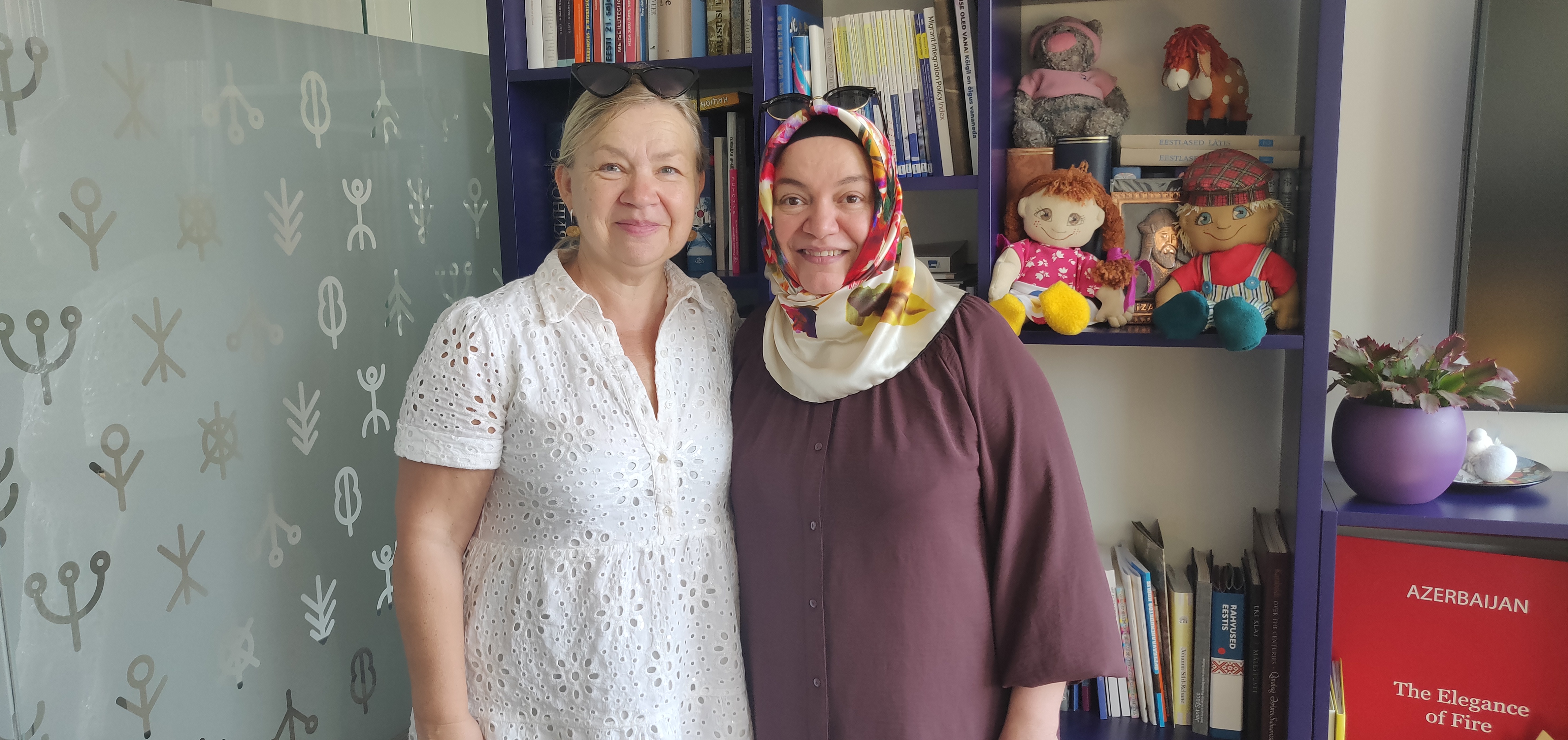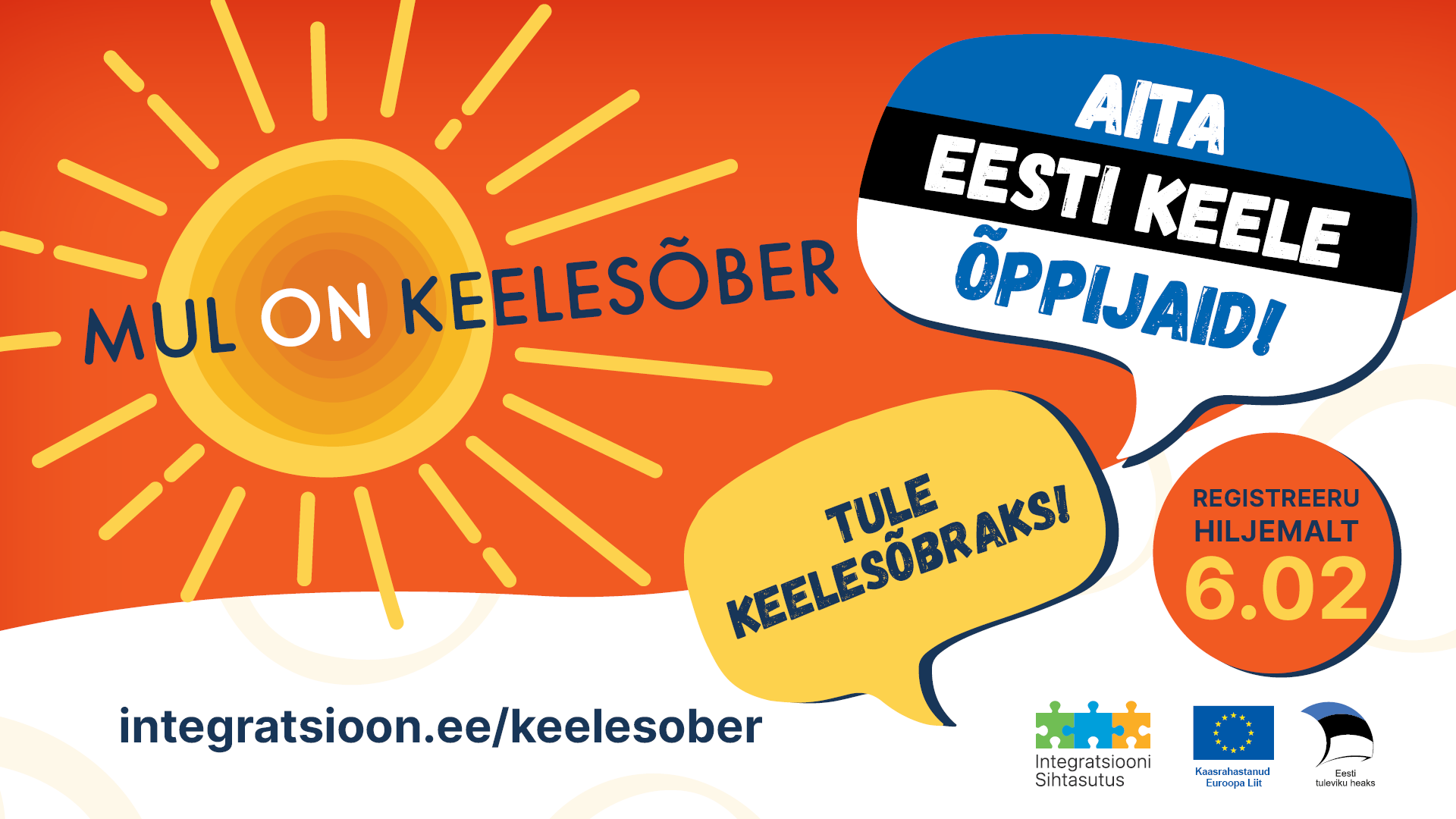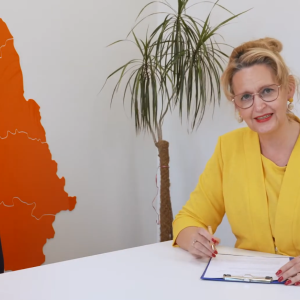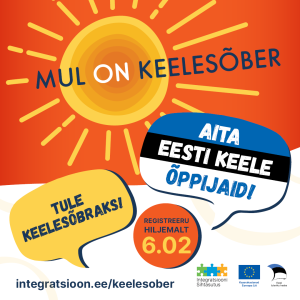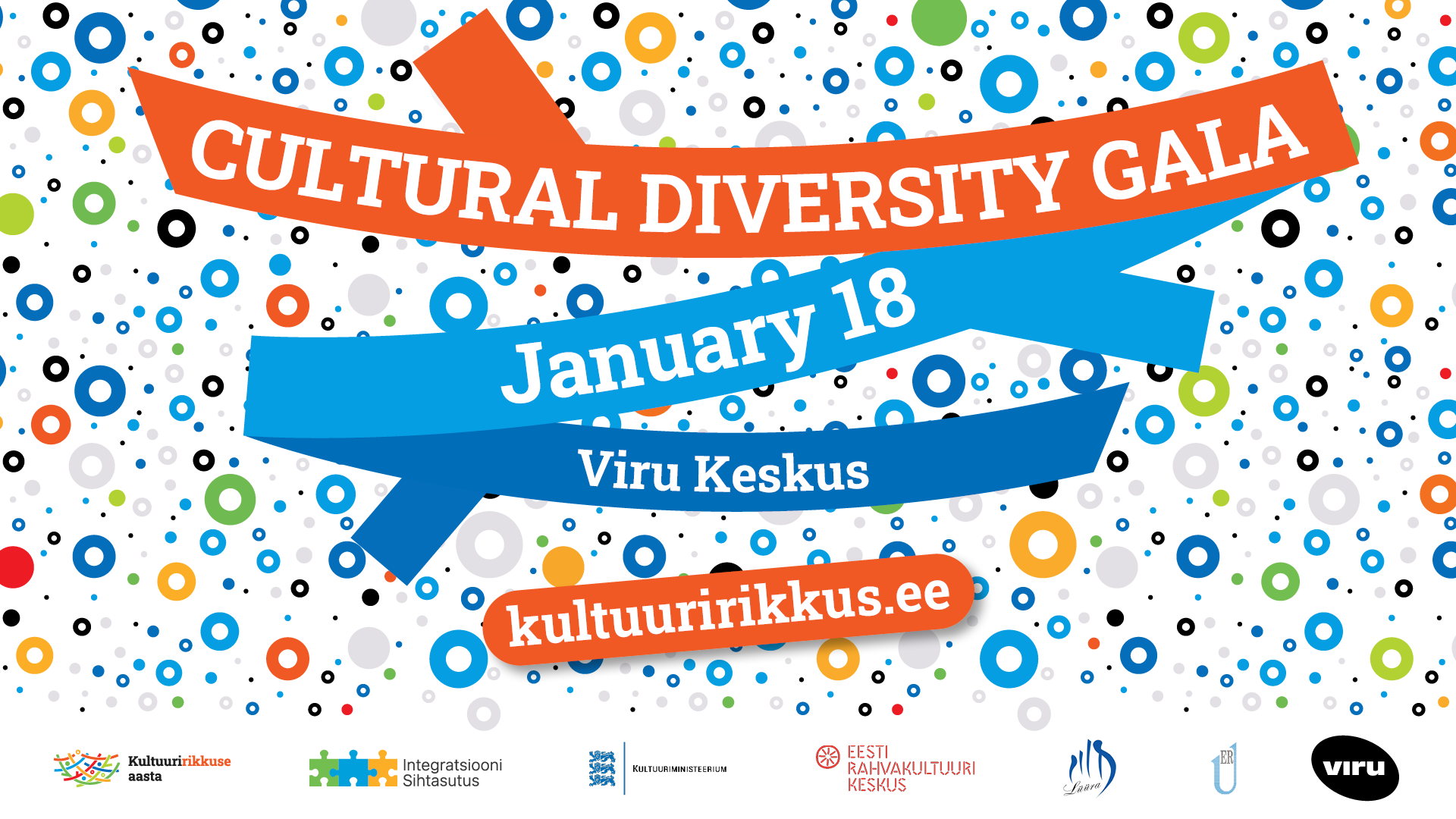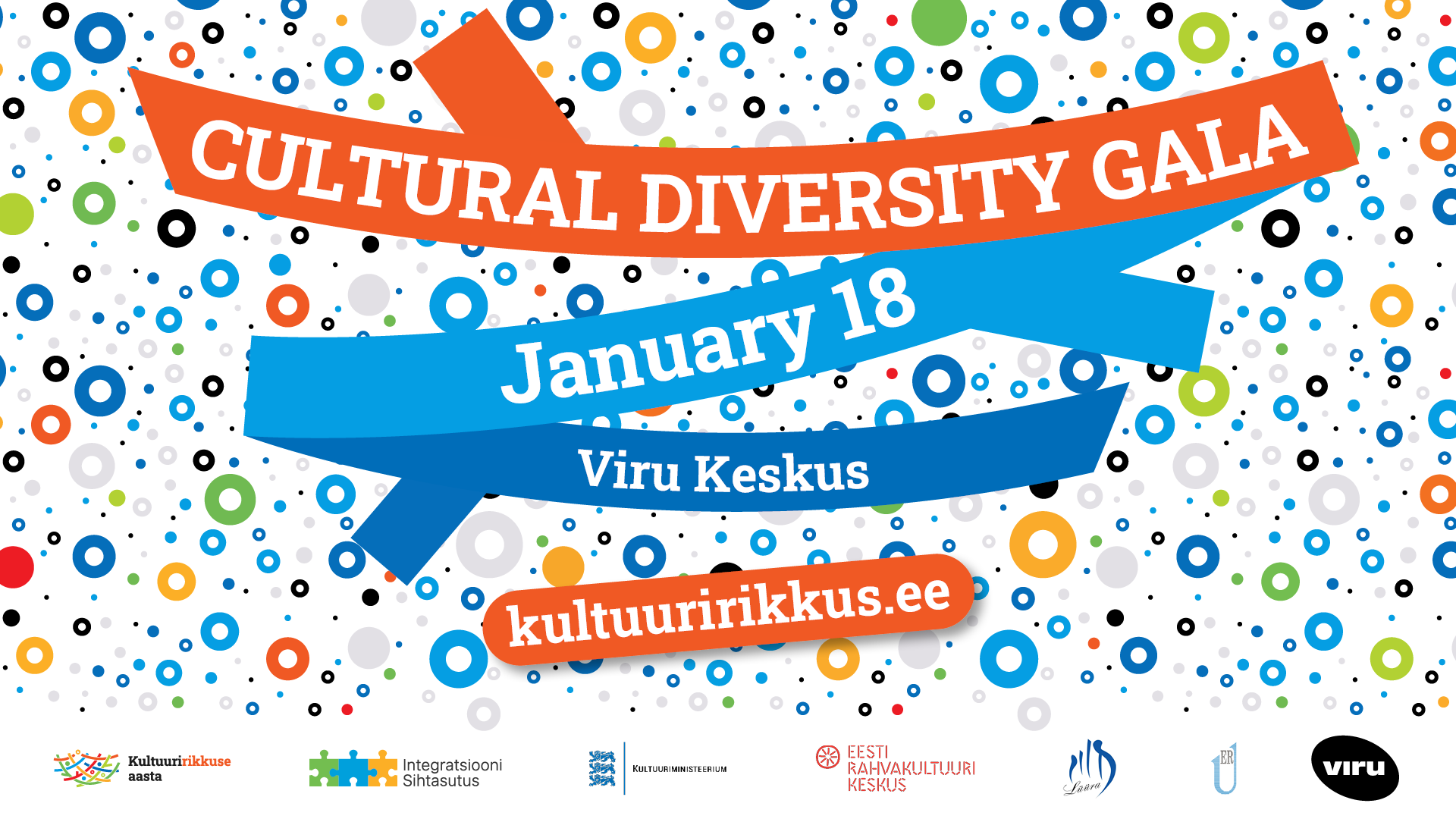‘When you send someone on their way, say ‘Nael kummi!’ (Nail in your tyre!). When your friend goes fishing, say ‘Kivi kotti!’ (Stone in your bag!). When your son is facing an exam, wish him ‘Head põrumist’ (Fail well!). Like ‘Break a leg!’ in English, all of these expressions are used in Estonian to wish well. To someone undertaking a journey, to a fisherman, or to a person about to sit an exam...’
That is what I say. Calmly and slowly. On the other side of the screen, Alexander is listening to me. Attentively – I can see it from his eyes. He wants to learn and I want to teach. I lay out all my knowledge about the Estonian language. Starting from those gained by listening to the lectures of the academician Paul Ariste at the university about the origins and nature of the Estonian language, ending with the new words and phrases found through the Sõnaus neologism contest.
A country like a German vessel
The learning and teaching began in February and is still ongoing – one hour of face-to-face conversation on Messenger every week. We started from getting to know one another. I told him about my work as a journalist and showed him a few books that I have written – for the student to trust the teacher. Alexander, whose full name is Alexander Evlanov, told me about himself. He was born in the vicinity of Tambov in Russia, but moved to Tallinn as a teenager, graduated from the maritime school here, and worked as a mechanist and a chef on different vessels for many years, including under the Norwegian and German flags, when the borders opened up. He also learnt to speak German, because German was the working language on a vessel sailing under the German flag.
‘Seamen tell a lot of jokes. Listening to the jokes helped me remember the words. And soon, I was a speaker myself,’ recalls Alexander about becoming fluent in German. He also says that there was no other option on a German vessel with an international crew in international waters. He had to learn the language. I as a teacher, however, learnt two new things at once: first, from that day forward, I sent my student one joke every day. There is an endless selection of those on the internet.
And second – there needs to be an environment where it is not possible to cope without being able to speak Estonian. But Estonia cannot be like a German vessel, where the captain issues an order and everyone will start to speak Estonian. We all have make an effort to create this vessel, this environment.
Why become a language friend?
I remember the adoption of the language act of the Estonian SSR in 1989. Hardly a day went past when we did not have to weigh the arguments for and against this – I was working as the editor of the Maaleht newspaper back then. More than 300 thousand signatures were collected in support of the language act. There were also many angry opponents, though. Internationals! This primarily meant employees of Union-wide Russian-speaking companies. But the Supreme Soviet restored Estonian as the official language. This piece of legislation both was and was not an act adopted to protect the Estonian language: it established the right to use Estonian as the business and communication language, while the right to do business and communicate in Russian was also ensured. The special status of the Russian language was justified with the need for Union-wide communication.
In 1995, when the Republic of Estonia had already been independent for four years, the parliament adopted the Language Act, the first section of which states unambiguously and clearly: the official language of Estonia is Estonian.
The position of the Estonian language has certainly improved over the twenty years. The athletes or artists of Russian origin who participate under the Estonian flag give interviews in Estonian. If you go to a restaurant or hotel in Narva, you will get your things handled done in Estonian. Even the officials of the city of Narva give interviews in Estonian. Recently, a global chain took a new step: it is no longer possible to use self-service in the Russian language at the McDonald’s restaurants in Estonia. All leaders of the city of Tallinn speak fluent Estonian now. As of 1 September this year, the transition to fully Estonian education will begin in schools. Alexander admits that he and several of his acquaintances sincerely wish to learn to communicate in Estonian. Not only because the language skills are required at the rehabilitation centre where he works. He wants to feel comfortable in this country, equal to everyone else.
Everything is moving in the direction of the Estonian language actually becoming not only the official language in Estonia, but also the language of this country, the language of communication. The movement is slow, though. We could, of course, ask: why is the country not doing more to accelerate this process? Is the fact that the number of Ukrainians in the country is already amounting to four per cent of the population not a further threat to the language balance which is barely in favour of the Estonian language as it is? Because Ukrainians will be communicating in Russian here. However, we could also ask – what am I doing to make Estonian the main language heard everywhere in this country? When I meet a Russian speaker in the street who turns to me in Russian, will I respond to them in Estonian, as slowly and calmly as I do when talking to Alexander?
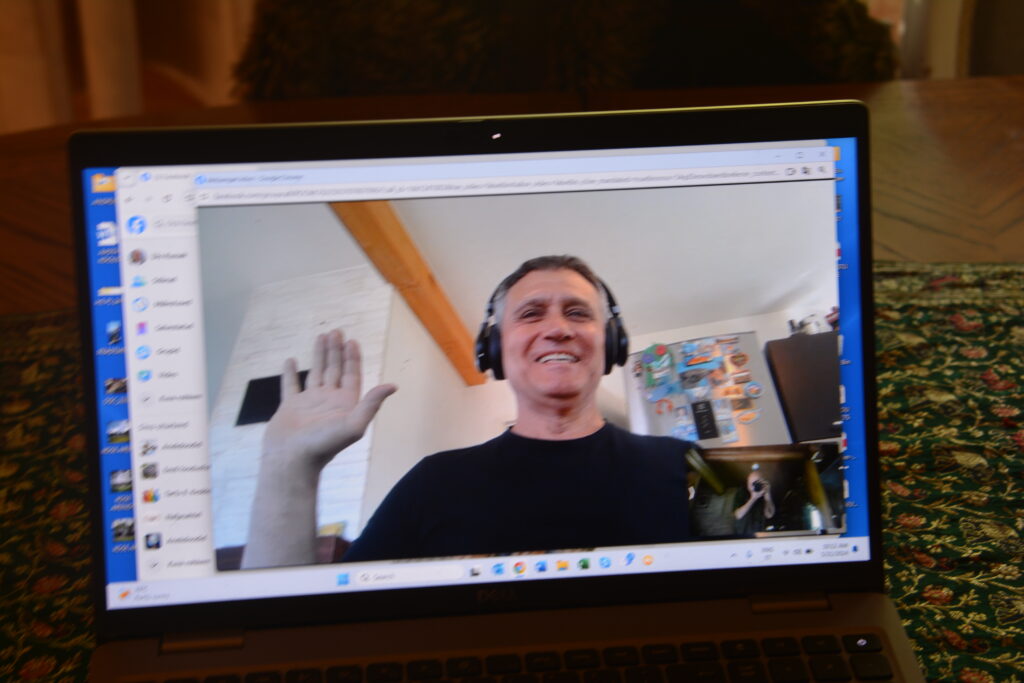
Alexander Evlanov in language class (PHOTO: Ülo Russak)
An invitation to become a language mentor
I was pleasantly surprised when the Integration Foundation asked me to become a language mentor in the beginning of the year. I am not sure if I wanted to become a mentor – that sounds kind of arrogant – but I did wish to be a language friend. That term was also suggested. In any case, I decided to join the programme of the foundation.
‘The Language Friends programme kicks off for the fifth year,’ said the leader Ave Landrat to introduce the programme at the first online meeting of the language friends, recalling what had already been achieved. Almost one hundred language teachers registered in the first year. No one could have expected such a high number, admitted Landrat – they had hoped that a few dozen participants would join. In the second year, the number of language friends tripled. ‘Even after 24 February 2022, no one told us that they were not interested in teaching Estonian to fascists,’ says the leader of the language programme, recalling the watershed moment. This year, the number of both teachers and learners amounted to almost 900. ‘From Antsla to Uganda,’ states Landrat about the geographic coordinates of the language friends. The locations of the learner and the teacher are not important – the teaching mainly takes place in the virtual world.
I am a language friend, as I need to change
‘Several of my acquaintances have started to learn Estonian. However, they abandon their studies – Estonian is difficult. And when an Estonian notices that a Russian speaker is struggling with the language, they automatically switch to Russian. So, the Russians will not learn,’ states Alexander to confirm my own observation in one of our language classes. I have also learned this bad habit over the years. And this is probably the case with all the people my age. Switching to Russian when we communicate with Russians. This is easier. Quicker!
But this is also one of the reasons why I agreed to become a language teacher. To train myself to use Estonian in conversations with Russian speakers. ‘Those Russians or Ukrainians who join the Language Friends programme – they already have basic knowledge of the Estonian language. They have at least the B1 level. You do not need to teach them words. Your task is to help them get into a habit of communicating in Estonian,’ said Ave Landrat at the first meeting of the language teachers.
‘I have the B1 level,’ confirms Alexander, who claims to often listen to various different radio channels in Estonia – Vikerraadio, Raadio 2, Raadio 7, Äripäeva Raadio. ‘I do not listen to music. But I always listen to advertisements – those texts are spoken in a clear language, all the words are pronounced,’ says my language friend, who is better acquainted with our advertising world than I am. He adds: ‘Dear Estonians! Do not switch to Russian as soon as your notice that it is difficult for your conversation partner to speak Estonian. Instead, ask them in Estonian – would it be easier for you if I spoke more slowly and clearly?’
An individual who wishes to make progress in learning the Estonian language will be very grateful to you and if they manage a successful dialogue in a conversation with you, keep in mind that you have made a tremendous contribution to helping them learn the beautiful Estonian language, says my language friend.
‘As someone who successfully learned German to the B2 level independently and without any courses, I know what I am talking about,’ adds Alexander.
‘No one will be left on their own – you can always write and ask for advice,’ said the leader of the programme to encourage the language friends at the first meeting, calling for the language teachers to exchange their experiences as well. For this reason, virtual meetings are organised for the language teachers every few weeks. I have also picked up some practical and useful tips for my language classes there. Alexander and I now send photos to one another so that we can take turns to ask and answer questions about the photos in our language classes. This is practical.
Does it sound a little childish, those jokes and photos? Perhaps. But I have rid myself of the habit of switching to Russian! This is a huge win. Alexander claims that his Estonian has become a lot more fluent over the four months when we have been language friends. This is another huge win. This year, however, 900 teachers and 900 students took part in the programme... How big a win is it really?
The programme of the Integration Foundation will officially end in May. Many will keep in touch and remain language friends, though, assures Ave Landrat. It remains unclear what we will be doing with Alexander Evlanov. The win is huge. But it is not a total triumph.
Ülo Russak
Journalist (Harju Elu)
https://harjuelu.ee/keelesobraks-sisemisel-sunnil/

